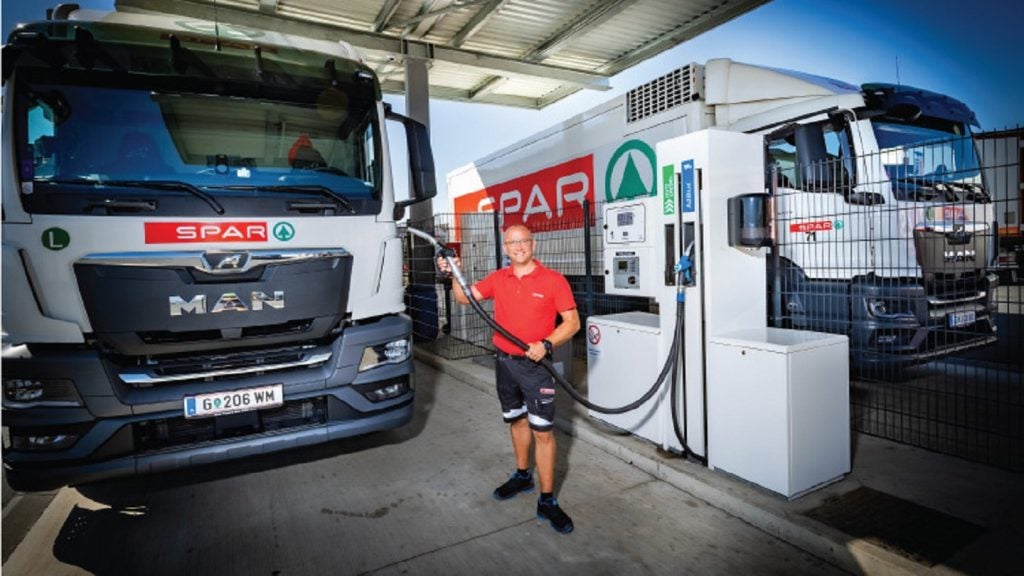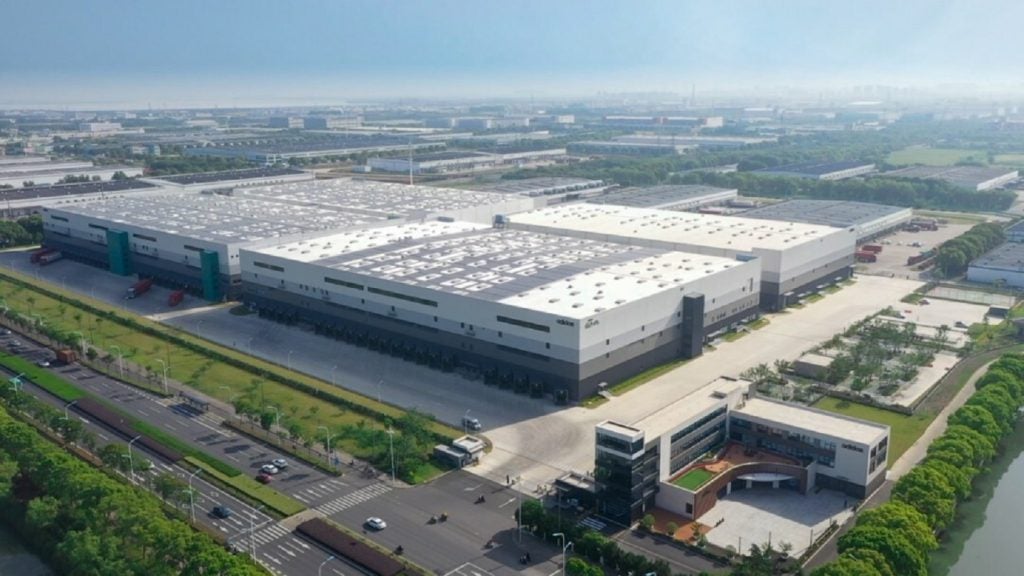The Austrian branch of the multinational retail chain SPAR has enhanced its commitment to sustainable mobility by switching to bio-based fuel.
The move is part of the company’s aim to power all its logistic operations with renewable energy sources by 2050.
SPAR Austria, which operates 300 trucks across its supply chain, said it has adopted renewable Hydrotreated Vegetable Oil (HVO) for more than 50% of its trucks since mid-September.
Made from used cooking oil, the fuel is considered a renewable, low-carbon substitute for diesel.
The retailer has adopted the fuel in five provinces, Vienna, Lower Austria, Burgenland, Styria and Carinthia, and has plans to expand it to other regions.
These trucks will continue to deliver products to 1,500 SPAR stores in Austria.
SPAR Austria expects the transition to bio-based fuel to save approximately 10,000 tonnes (t) of CO₂ annually in the first five provinces.
It has the potential to save up to 17,000t if adopted throughout Austria.
In a statement, the retailer said: “SPAR Austria confirmed a reluctance in the past to use this fuel source due to plant-based oils such as rapeseed, soybean, or palm oil, potentially competing with other crops for land use during the fuel production process.
“Ensuring the HVO fuel is 100% certified and obtained from used cooking oils and residues containing no palm oil was a key factor for SPAR Austria to adopt this fuel in their vehicles.”
The company also noted that though the fuel sourcing is 100% bio-based, emissions are produced during the refinery and fuel transportation stages.
Last month, SPAR Austria revealed plans to combine its two sales units from 1 January 2024.















